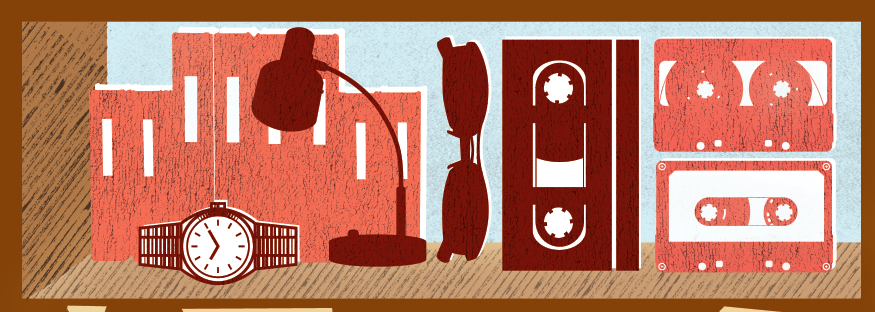I have bad news. There’s really no way to sugarcoat it. I tried to start with an anecdote, a joke or an analogy. But I’m on my sixth rewrite and I’ve finally decided that it’s best if I just put it out there. So here goes: You have to stop using the word “brand.”
Put it on a shelf with your other favorites from the ‘90s. It should fit in the same box as your old Soundgarden cassettes, your Iomega Zip drives, and the three-ring binder full of TQM materials. There are a couple of reasons to let go of the word.

Reason 1: No one knows what you’re talking about.
You’re a marketing genius. You know exactly what you mean when you use the word “brand.” It is a concrete, concise and solid definition. It’s as obvious as if you were to say “tomato” or “dog.”
But that’s the problem.
To you, a tomato may conjure images of a ripe beefsteak. But the person next to you may think of an heirloom or a Roma. Dogs are relative, too. You may see a Chihuahua, while your neighbor sees a Great Dane. The same goes for “brand.” Some people think it’s a logo. Some think it’s an advertising campaign. Some think it’s a color palette and a specific font. Some think it’s shelf presence. Some think it’s the salesforce. Some think it’s a few of those things. Some think it’s all of those things and more.
No one’s wrong. No one’s right. Everyone’s confused. This wouldn’t be a big deal if we didn’t use the word “brand” as a strategic direction so often. But we do. When you ask for something that’s “on brand” or in “brand standards,” do you get what you were expecting? Probably not. Why? Because the word “brand” conjures a different definition in someone else’s head than it does in yours.
Reason 2: No one cares what you’re talking about.
That’s not true. It’s not that most people don’t care about your definition of “brand.” It’s worse. They hate you when you use the word. Your marketing peers may not be able to come to a definition, but your non-marketing colleagues have.
Immeasurable. Ineffective. Superfluous. Those are the big, polysyllabic words they use in public. Bullshit. That’s the word they use when they’re comparing “brand” budget to their departmental budget.
For a long time, the word “brand” was revered. The C-suite evangelized. The Marketing Department proselytized. Everyone else was hypnotized. They didn’t quite understand it. But whatever a brand was, there was a united front about its value and everyone needed to fall in line.
Eventually, though, they realized no one was talking about the same thing. People began to suspect that their marketing colleagues were simply throwing the word around to get their way and keep their budget: “This initiative is highly important to support our brand equity.” Or: “We can’t do that. That’s not on brand.” How many times have you heard things like that? Heck, how many times have you said stuff like that?
A few years ago, a silent-but-perceptible backlash against the word “brand” began to build in many organizations. People’s curiosity started to become animosity. The applause for brand-building became a golf clap.
Then the economy melted. And it didn’t matter that research proved companies who invested in their “brands” faired better during and after a recession. The pitchforks and torches were out. And so was the CFO’s red pen.
Now what?
This is an opportunity. Stop using the word and start asking questions. When a marketing colleague wants something “on brand,” ask them what they mean. Ask them to describe the very specific elements they’re looking for. Are they talking about colors and logo placement? Are they referring to language and tone? Make them think and explain. The irony: by using other words, everyone will begin to have a very clear understanding of what “brand” means in your organization.
And then there’s you. Don’t default to “brand” in conversation. Mention specifics. If something you’re doing needs a certain font or a certain attitude in the copy, say so. If you’re developing a new advertising campaign that’s more about the overall company than specific products or services, don’t call it a “brand campaign.” Call it a “corporate campaign” or an “overall campaign.” Say it’s “not product-specific” but is meant to “provide support for specific product initiatives.” Say whatever you want, just leave the word “brand” out of it.
That’s the other irony: by letting go of the word “brand,” you get to keep the brand itself. Even better? In the newest New Economy, you may also get to keep your job.




